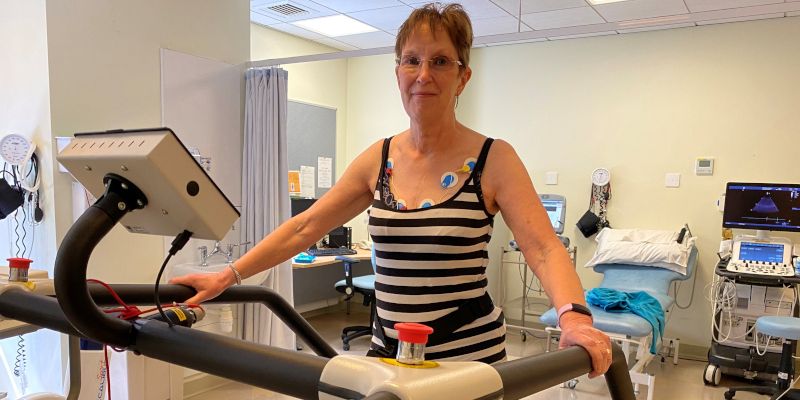
People living with heart failure could benefit from personalised pacemakers to help them exercise safely, thanks to a trial being carried out by a team in the School of Medicine.
About 920,000 people across the UK suffer from the condition, which prevents the heart from pumping blood around the body effectively. It can be debilitating and leads to breathlessness and fatigue – making everyday activities and exercise more difficult.
Pacemakers are often implanted in patients to help retune the heart's pumping function, and are programmed using a default algorithm to increase heart rate during exercise.
“For those living with pacemakers, even modest improvements in exercise capacity and symptoms can have dramatic effects on self-confidence, independence and quality of life.”
But the researchers have shown that this "one size fits all" algorithm does not always improve a person’s ability to exercise. They believe this could be because the algorithm is based on the heart rates of healthy individuals.
Now the British Heart Foundation has awarded the team almost £260,000 for a new trial to assess how this approach improves the function of the heart and exercise capacity.
The trial, which launches this month from the National Institute for Health Research Cardiovascular Clinical Research Facility at Leeds General Infirmary, will involve about 100 patients
Dramatic effects
Professor Klaus Witte, Associate Professor at Leeds' School of Medicine and Consultant Cardiologist at Leeds Teaching Hospitals NHS Trust, said: “For those living with pacemakers, even modest improvements in exercise capacity and symptoms can have dramatic effects on self-confidence, independence and quality of life.
“Our early research has found that this could also really benefit their hearts by helping to slow down deterioration of heart function.
“The findings could help guide the development of a larger, multi-centre study, which could ultimately change the way we think about treating people living with heart failure.”
The team has already discovered that by programming pacemakers to an individual’s heart rate, they can improve how well they can exercise, ensuring they get the benefit of higher heart rates during activity but that their heart is not pushed too fast, which could be harmful.
Triple test trial
The patients involved in the trial will be randomly allocated to have their pacemakers programmed in three different ways.
Members of the first group will have the standard algorithm, whilst those in the second group will have the algorithm turned off. Those in the third group will have their pacemaker personalised for their heart – all will be reassessed after six months to assess the effects.
Dr Noel Faherty, Senior Research Adviser at the BHF, said: “Heart failure is a chronic condition that has no cure, so improved treatments are needed to ensure people living with this condition can have a better quality of life.
Pacemakers are life saving, but there is a lack of guidance around how heart failure patients living with these devices can exercise most effectively. Promising early studies have shown the benefits of personalised programming, so this research could provide new answers which could help patients live well for longer.”
Further information
Image shows Anne Dixon, 67, from York, who was diagnosed with heart failure in 2013. She lives with a pacemaker and has experienced several benefits after her pacemaker received personalised programming.
For media enquiries, contact University of Leeds press officer Kersti Mitchell via email at k.mitchell@leeds.ac.uk.